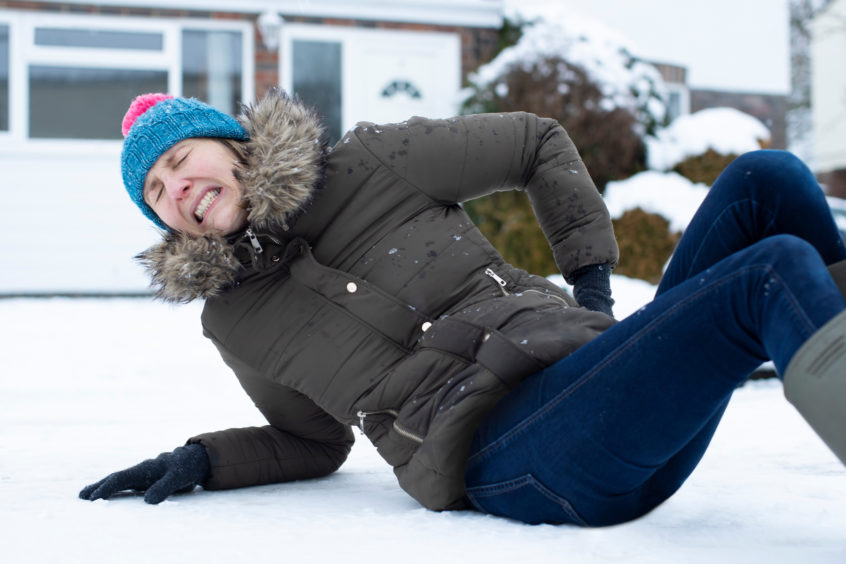Avoid Slips and Falls with These Simple Tips According to the National Council on Aging, falls are the leading cause of fatal and non-fatal injuries for older Americans. Falls threaten seniors’ safety and independence and generate enormous economic and personal costs. According to the U.S. Centers for Disease Control and Prevention: One in four Americans aged 65+ falls each year. … Read More
Study Shows Connection to Hearing/Dizziness
Study Reveals Connection Between Hearing and Dizziness What people hear and do not hear can have a direct effect on their balance, according to new research from the New York Eye and Ear Infirmary of Mount Sinai (NYEE). The research, published in the March 12 issue of JAMA Otolaryngology-Head & Neck Surgery, provides a better understanding of the relationship between … Read More
Research Linked to Common Dizziness Condition
Research Links Dizziness to Common Conditions If lying down or turning over in bed makes you feel dizzy, it could be an indication that you have a common dizziness condition called benign paroxysmal positional vertigo, or BPPV. This condition can have a major impact on quality of life, even though it is a benign. And even though BPPV isn’t life-threatening, … Read More
Dizziness and Balance Basics
Understanding Dizziness and Balance Our balance system is something most of us take for granted as long as we can walk, run or move without falling. Balance is controlled through signals to the brain from your eyes, the inner ear (vestibular system) and the sensory systems of the body, such as muscles, skin and joints. If any one of these … Read More
Dizziness and Hearing Loss During the Pandemic
Hearing Loss and Dizziness Lessons from the Pandemic If someone had told you on New Year’s Day January 2020, that in a few short weeks the world would be facing a pandemic, the likes of which hasn’t been seen in a century, and that almost every business would be shut down to stop its spread, you probably would have laughed … Read More
Hearing Loss is Associated with Increased Fall Risk
Every second of every day in the United States an older adult falls, making falls the number one cause of injuries and deaths from injury among older Americans, according to the Centers for Disease Control. There are many contributors to falls. Individuals may not be able to see well or their reflexes might not be as sharp as they once … Read More
Take Precautions to Prevent Slips and Falls this Winter
In the United States, about one in four adults (30%) age 65 and older, report falling each year, according to the Centers for Disease Control. This results in about 30 million falls each year. While not all falls result in an injury, about 38% of those who fall reported an injury that required medical treatment or restricted their activity for … Read More
Recognizing Balance Awareness Week
Balance Awareness Week is Sept. 15–21, 2019, an observance designated by the Vestibular Disorders Association (VeDA) which aims to increase awareness about vestibular disorders and support patients in their journey back to balance. The vestibular system includes the inner ear, which houses the organ of balance, and the brain. These organs work together to control/coordinate balance and eye movements. Damage … Read More
Don’t be Dizzy! The Most Common Causes of BPPV
Feelings of dizziness can mean many things and are often linked to problems affecting the equilibrium system. A few symptoms of dizziness and imbalance include experiencing blurry vision or spinning (vertigo), weakness and general unsteadiness, and feeling lightheaded or faint. Benign paroxysmal positional vertigo, or BPPV, is the most common cause of vertigo. In fact, this condition will affect approximately … Read More
Who Should I See for Dizziness and Balance Problems?
According to the Vestibular Disorders Association, 80 percent of people 65 years old and older have experienced dizziness. Benign Paroxysmal Positional Vertigo, or BPPV, the most common vestibular disorder, is the cause of approximately 50 percent of dizziness in older people. Overall, vertigo from a vestibular problem accounts for one-third of all dizziness and vertigo symptoms reported to health care … Read More










